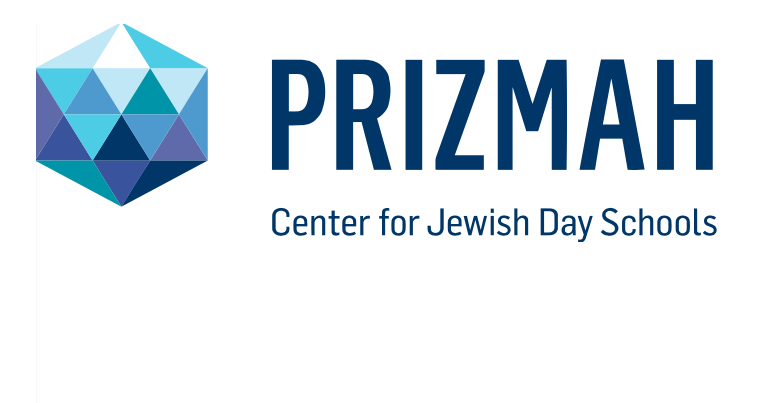BaMidbar is excited to share a new program partnership with Prizmah, the network for Jewish day schools across North America. School leaders and our communities are going through a uniquely challenging collective experience. By understanding relevant research on stress-informed environments, we can notice patterns of thinking and behavior that will enable us to strengthen our leadership practices, and to create school communities where our teams can build resilience and thrive.
In partnership with Prizmah, we are providing a four-part workshop series to deepen understanding around the patterns that arise in complex environments impacted by stress. Click here to learn more about the workshop series, “Leading Teams in Stress-Informed School Environments: A Deep Dive.”
Prizmah also recently published a blog written by BaMidbar’s CEO, Jory Hanselman Mayschak. You can read her blog below, titled “Tisha B’Av and Yavneh: Acknowledging Grief and Looking Towards the Future.”
TISHA B’AV AND YAVNEH: ACKNOWLEDGING GRIEF AND LOOKING TOWARD THE FUTURE
Over the course of the pandemic, we all have experienced losses, both big and small. We have grieved the loss of things like personal space and travel. Our current seniors were freshmen the last time they had an uninterrupted school year. We’ve missed major milestones like baby namings, graduations and weddings. And many feel the gaping hole left by loss of life. We are grieving, our students are grieving, and our communities are grieving.
There’s power in acknowledging and naming grief and recognizing that a piece of the weight we carry right now is grief, for things big and small. As the pandemic stretches on and on (and on and on), how do we look toward the future, while also honoring the losses we have experienced and are still currently experiencing? What can we learn from Jewish tradition as we grieve individually? How can our community create intentional space to honor loss and also support restoration and healing?
DUAL PROCESS COPING
At BaMidbar, where we’re working to build a Jewish community that actively supports its youth in cultivating mental health and wellness, we look at the intersection of Jewish tradition and mental health. When I think about this intersection in regards to grief and loss, I think about Tisha B’Av, the town of Yavneh where the Talmud was born, and the “Dual Process Model of Coping with Bereavement” (Stoebe and Schut, 1999).
In opposition to linear perspectives of grief (such as the five stages of grief: denial, anger, bargaining, depression, and acceptance), the dual process model proposes that there are two fundamental categories of coping mechanisms associated with grief, which we oscillate between. There’s loss-oriented coping, where we’re facing the loss itself. This might be sharing stories, looking at pictures from the past, and reflecting on what we’ve lost. It can also be avoidance, disbelief and numbness. It’s the moments when we feel that emptiness, the gaping hole that is the lack of something in our lives.
On the other side, there’s restoration-oriented coping, where we’re integrating our loss into our new perception of the future, rebuilding, step by step, asking what it means for us now, and moving into the new reality. The dual process model says that both types of coping are necessary and that it’s adaptive and healthy to oscillate back and forth between the two now and into the future.
A JEWISH PARADIGM
Jewish tradition provides a perfect example of this oscillation between loss-oriented coping and restoration-oriented coping, through the lens of the holiday of Tisha B’Av and the town of Yavneh.
The year is 70 CE, and the Romans have just sacked the Second Temple in Jerusalem. The Temple is central to religious, spiritual and communal life, and ritual revolves around sacrificial practice within its precincts. The Jews are exiled from Israel, the great diaspora has begun, and life as they know it is over. “How can Judaism continue?” people asked. “What does it even mean to be a Jew, to practice, without the Temple?”
At the time, many thought the destruction of the Temple would be the end of Judaism. But it wasn’t. The Judaism we know and practice now looks completely different than what Judaism looked like in the days of the Temple. So how did we get from a religion of ritual, sacrifice and Temple observance to the rich tradition we have today?
In the last days of the Roman siege of Jerusalem, Rabbi Yochanan ben Zakkai smuggled himself out of Jerusalem in a coffin. He fled the city and went to the town of Yavneh, where he helped establish the first rabbinic community of the diaspora. In Yavneh, rabbis gathered. They debated, they mourned, they learned, they loved, they cried. And they lived, despite crushing loss. And in Yavneh, the Talmud and rabbinic Judaism were born.
Rabbi Yochanan ben Zakkai dared to imagine a future vastly different from the life he thought he would lead. The Temple was lost, but Judaism was not. The rabbis integrated the loss of Judaism as they knew it into their new future, rebuilding, step by step, a life without the Temple. And here we are today, 2000 years later, with a rich and vibrant Jewish tradition borne from the town of Yavneh. But the Temple was not forgotten. Every year, on the ninth day of Av, Tisha B’Av, we mourn. We fast, we weep, we sit shiva for the temple, we read Job and Lamentations, and we remember. We may have survived and found a new path forward, but Tisha B’Av remains.
As we enter our third pandemic spring, what can we learn from Tisha B’Av and Yavneh? How do we create space to honor loss, to name it and say Yes: I am grieving, I have been grieving, and I will continue to grieve. And how do we also look toward the future and rebuild? What comes next? How do I keep moving forward? How do I live each day into a different future? And how can I support my community in doing the same?
Jory Hanselman Mayschak is the founding Executive Director of BaMidbar, which works to ensure that Jewish youth and young adults have the confidence, skills, and community support to navigate life’s challenges and thrive in the face of adversity. For over a decade, Jory has worked with organizations that empower youth in experiential and outdoor settings. She received her undergraduate degree from Tufts University and her Masters in Public Administration with a concentration in nonprofit management from University of Colorado. She is also a Wexner Field Fellow. BaMidbar will be partnering with Prizmah in Spring 2022 to help schools build mental health capacity, through a four-week course entitled “Deep Dive for Heads of Schools and Leadership Teams: A Systems Approach to Leading Teams in Stress-Informed School Environments.”
This blog was originally published in the Prizmah Center for Jewish Day Schools Blog.

